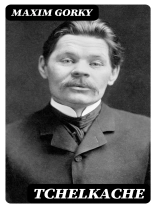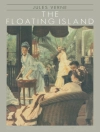Maxim Gorky’s ‘Tchelkache’ is a striking novella that encapsulates the struggles of the human spirit against the backdrop of the tumultuous social changes in early 20th-century Russia. The narrative is marked by Gorky’s evocative prose and realist style, which vividly sketches the life of a fisherman’s struggles with poverty, identity, and existential despair. Set in a gritty, maritime locale, the novella employs rich imagery and poignant dialogue to bring to life the themes of resilience and the quest for meaning amidst hardship, thereby placing it within the larger framework of Russian literature that grapples with social inequality and human suffering. Gorky, born into a modest family in 1868, experienced firsthand the harsh realities of life that permeate his works. His upbringing in poverty, along with his subsequent work as a laborer and his interactions with the revolutionary movement, deeply influenced his worldview and literary voice. ‘Tchelkache’ reflects his profound empathy for the downtrodden and showcases his commitment to social change—principles that guided him throughout his writing career. This novella is highly recommended for readers interested in Russian literature, social realism, or the exploration of the human condition. Gorky’s candid portrayal of life’s struggles invites readers to reflect on their own societal contexts, making ‘Tchelkache’ not only a compelling narrative but also a timeless commentary on the resilience of the human spirit.
Giới thiệu về tác giả
Maxim Gorky, born Aleksey Maximovich Peshkov on March 28, 1868, in Nizhny Novgorod, Russia, stands as a towering figure in Russian literature. Often celebrated as the founder of socialist realism, Gorky left an indelible mark on the 20th-century literary landscape. His pen name ‘Gorky’ translates to ‘bitter’, reflecting both his challenging early life and the tone of his works, which frequently addressed the plight of the lower classes and critiqued the societal injustices endemic to the Russian Empire and the Soviet Union.
Gorky’s writing career began with short stories and his first notable work, ‘Tchelkache’ (1899), exemplifies his ability to weave compelling narratives around marginalized characters, in this case, a vagabond thief. The story is often celebrated for its vivid language and sketched a portrait of the Russian proletariat with unprecedented depth and nuance. Gorky’s literary style combined realism with lyrical elements and deeply empathetic character studies, often highlighting the resilience and innate dignity of the oppressed. His contributions to literature go beyond his written works; Gorky was also a political activist and supporter of the Bolshevik Revolution, although he later became critical of Bolshevik policies. His complicated relationship with the Soviet regime offered a unique perspective on the political and social changes in Russia which often permeated his writings. Gorky’s work has influenced numerous authors and remains a staple in the canon of Russian literature. His legacy continues to inspire and provoke thought about the human condition, the struggle for justice, and the power of narrative. Maxim Gorky passed away on June 18, 1936, but his works endure as a testament to his life’s ardor.












